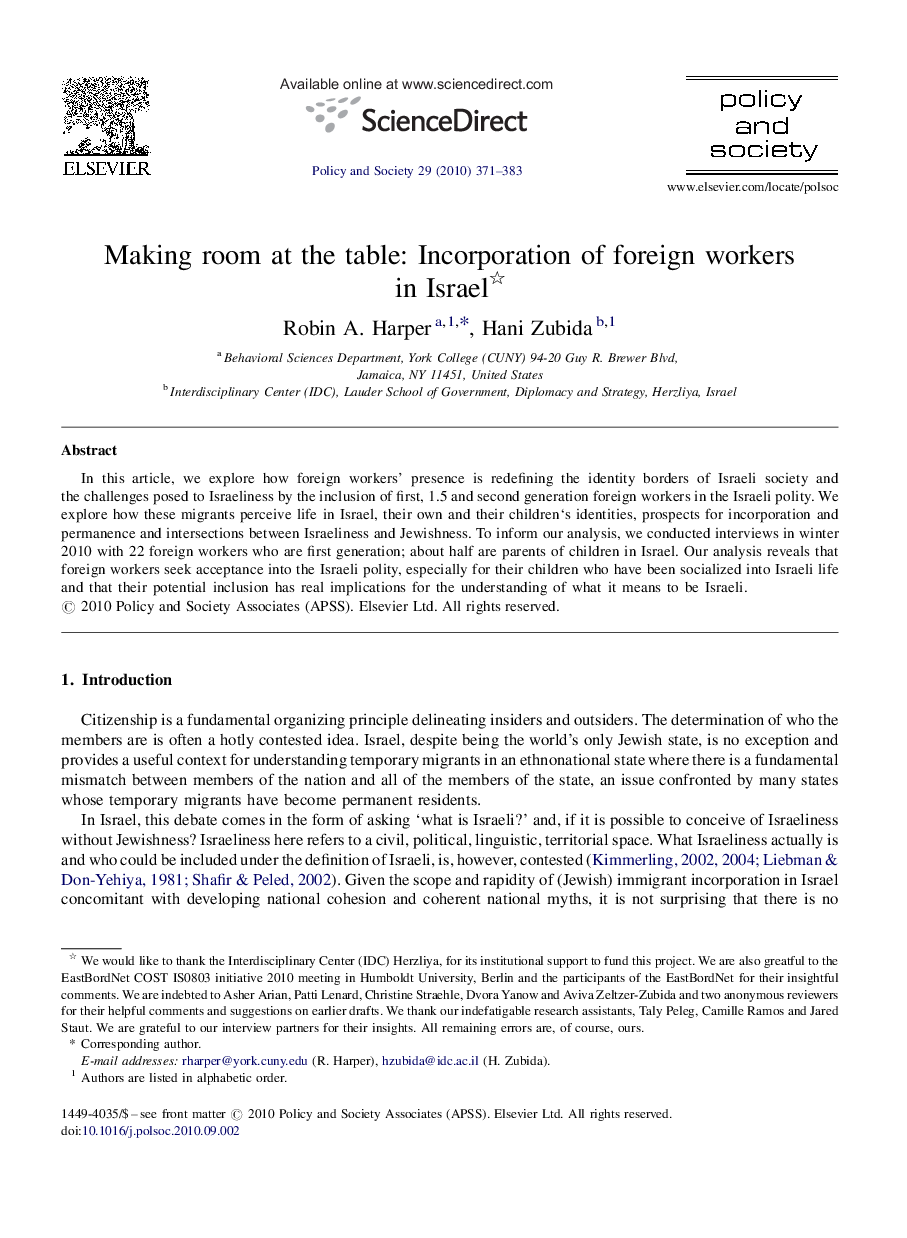| Article ID | Journal | Published Year | Pages | File Type |
|---|---|---|---|---|
| 1061678 | Policy and Society | 2010 | 13 Pages |
In this article, we explore how foreign workers’ presence is redefining the identity borders of Israeli society and the challenges posed to Israeliness by the inclusion of first, 1.5 and second generation foreign workers in the Israeli polity. We explore how these migrants perceive life in Israel, their own and their children‘s identities, prospects for incorporation and permanence and intersections between Israeliness and Jewishness. To inform our analysis, we conducted interviews in winter 2010 with 22 foreign workers who are first generation; about half are parents of children in Israel. Our analysis reveals that foreign workers seek acceptance into the Israeli polity, especially for their children who have been socialized into Israeli life and that their potential inclusion has real implications for the understanding of what it means to be Israeli.
Research highlights▶ Foreign workers in Israel are challenging the identity borders of Israeli society, as an ethnonational state in transition. ▶ Foreign workers experience extreme isolation/invisibility, suffer from arbitrary treatment and seek holiness in Israel. ▶ Temporary visas and mistreatment have not precluded attachment and “Israeli” identity development. ▶ The children of foreign workers in Israel create cleavage between Israeliness and Jewishness.
